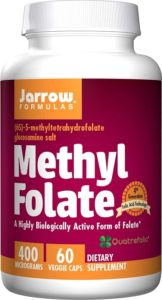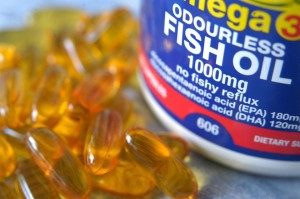Is there a link between diabetes and depression?
If you’re suffering from diabetes and feeling a little low – well you’re not alone. It’s bad enough that one in four people is estimated to suffer from depression in some point in their adult life, if you have diabetes, according to authorities you are twice as likely to suffer from depression.
Even more worrying is the news that depression increases the risk of diabetic complications. The numbness that comes with depression can easily turn into diabetes burnout, where regular blood glucose testing, taking medication, following a healthy eating plan and getting regular physical activity are neglected or ignored. Thankfully there are plenty of safe and effective natural treatments that can help get your mood back on track, have you enjoying life to it’s fullest and feeling back in control of your health and blood sugars.
Natural Treatments for Depression in Diabetics
FOLATE

Before you rush out to the health food store however, not just any old folate or folic acid supplement will help depression. You need a special form of folate called methyl folate. Folic acid itself is inactive: first your body needs to convert it into it’s active form called 5-methyltetrahydrofolate, referred to as 5-MTHF.
Methylfolate is safe to take with standard antidepressant medications and in fact can make them even more effective.
SAM-e
SAM-e (S-adenosyl-L-methionine) is a naturally occurring molecule found throughout the body and has been studied extensively as an antidepressant and found to be effective as medication for mild to moderate depression.
SAM-e has one distinct advantage over medication: it can improve mood after just a few days. Most antidepressants, including herbal products such as St johns wort, can take tow to four weeks to start working. It can also be as effective as non-steroidal anti-inflammatories for the pain of osteoarthritis.
5HTP
5 hydroxytryptophan, or 5HTP is a naturally occurring amino acid sourced from the seeds of Griffonia simplicifolia. Amino acids are the building blocks of protein. 5HTP is able to cross the blood brain barrier where, in conjunction with vitamin B6, it is converted into the happy hormone, serotonin. 5HTP is very safe and your body will only use it to make serotonin if levels are low. If levels are normal, it is simply excreted.
However, it’s best not to take it while taking SSRI (Selective serotonin reuptake inhibitors) antidepressant medications such as Prozac and Zoloft.
FISH OIL

Your brain now faces challenges that your ancestors never faced in their thousands of years of development, such as modern fats – especially trans fatty acids. T
hese modern fats found in potato crisps, margarine, and anything with ‘partially hydrogenated’ on the label, disrupt communication signals in your brain – and if your brain is constructed from the wrong type of fats, just like a building is constructed from shoddy materials, it’ll find it difficult to weather the storms and increasing stresses of modern life.
ZINC
The mineral zinc is essential for communication between brain cells in your hippocampus, the part of your brain responsible for mood control, learning and memory. Studies in recent years have noted that the hippocampus is shrunken in people with major depression. Zinc is also required, along with B6 and tryptophan, for the production of serotonin.
It’s also a potent anti-inflammatory and many researchers are now suggesting that depression is simply another manifestation of excessively high levels of inflammation throughout the body. The recommended dosage of zinc for depression is 30-40mg per day.
HERBAL SUPPORT St John’s Wort.
St John’s Wort is a herb traditionally used for the treatment of nervousness, melancholia, wounds, sciatica, fevers and even snake bites. Today it’s best known for a herbal remedy for depression and clinical studies have shown it’s as effective as medication for mild to moderate depression.
GINKO BILOBA
Most people think of the herb Ginko Biloba as a treatment to help improve memory and blood flow to the brain and legs. However, it’s also been shown as an effective treatment for the symptoms of peripheral vascular disease (PVD) where circulation is reduced to parts of the body other than the brain or heart due to narrowed or blocked blood vessels.
Some things to remember if you are a Diabetic with Depression.
- Surround yourself with positive people who understand. Now is not the time to keep feeding emotional vampires.
- Don’t focus on the foods you can’t eat anymore: Instead, choose to focus on the scrumptious and tasty foods that are part of your new diabetes friendly way of eating.
- Forgetting to take your supplements? Divide them into snack-sized zip-lock bags so you only have to open the one bag to take all your supplements, instead of several containers.
- Aim to walk for at least 10-30 minutes each day. Listen to something that motivates, inspires or just makes you smile while you walk.
- Limit your alcohol intake.
- Make getting to bet on time and a good nights sleep, priorities. Set your alarm and get up each day at the same time.
- Eat breakfast and lunch outside, to allow bright sunlight to help stimulate feel good chemicals.
- Talk to your GP about seeing a counsellor.
- Find a doctor, naturopath and pharmacist who are experienced with both diabetes and depression and are happy to talk with one another and have your health and happiness as their main priority.

